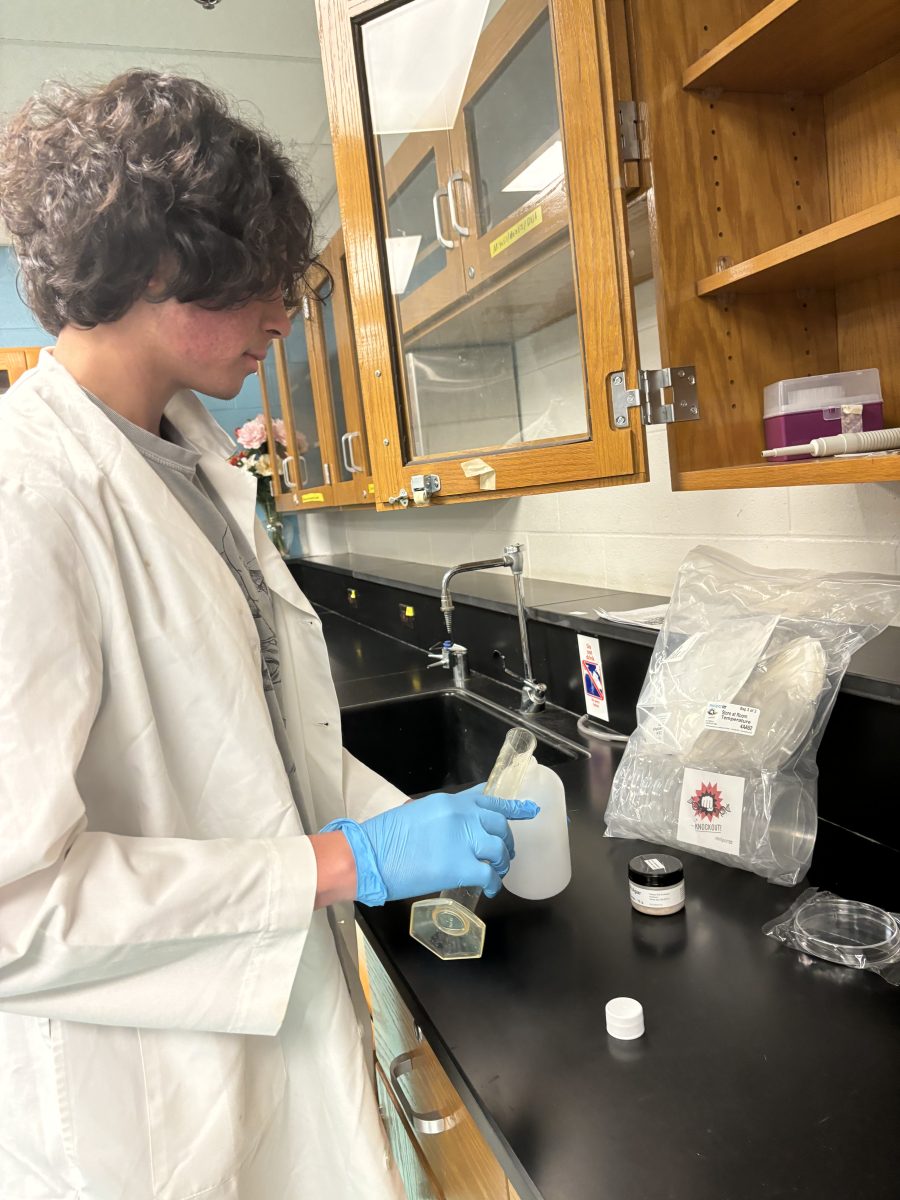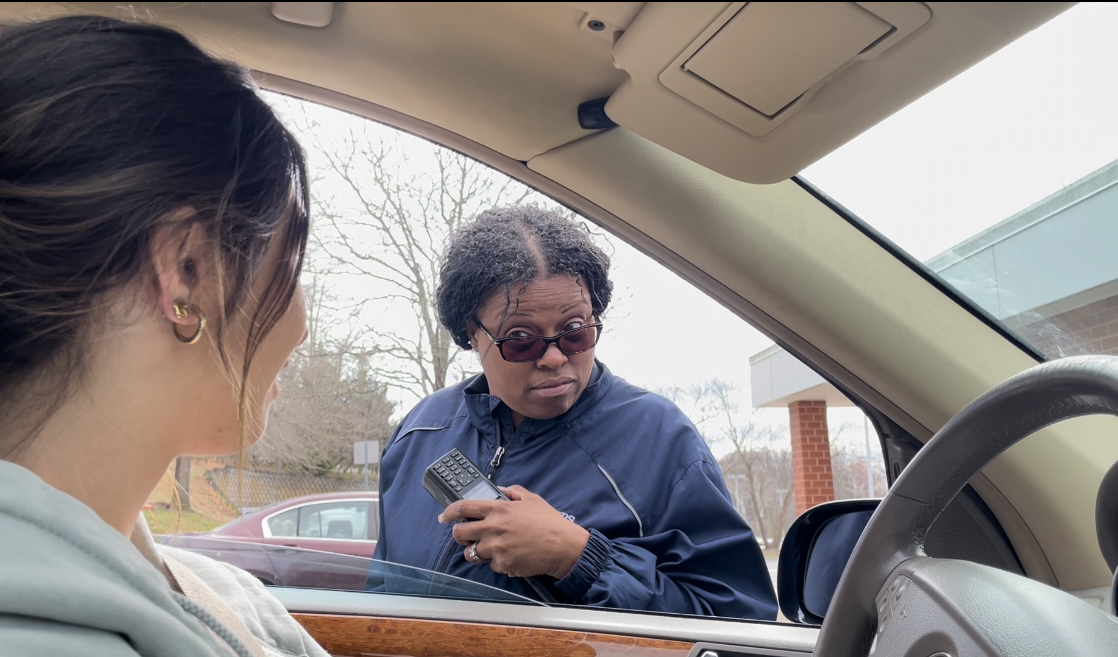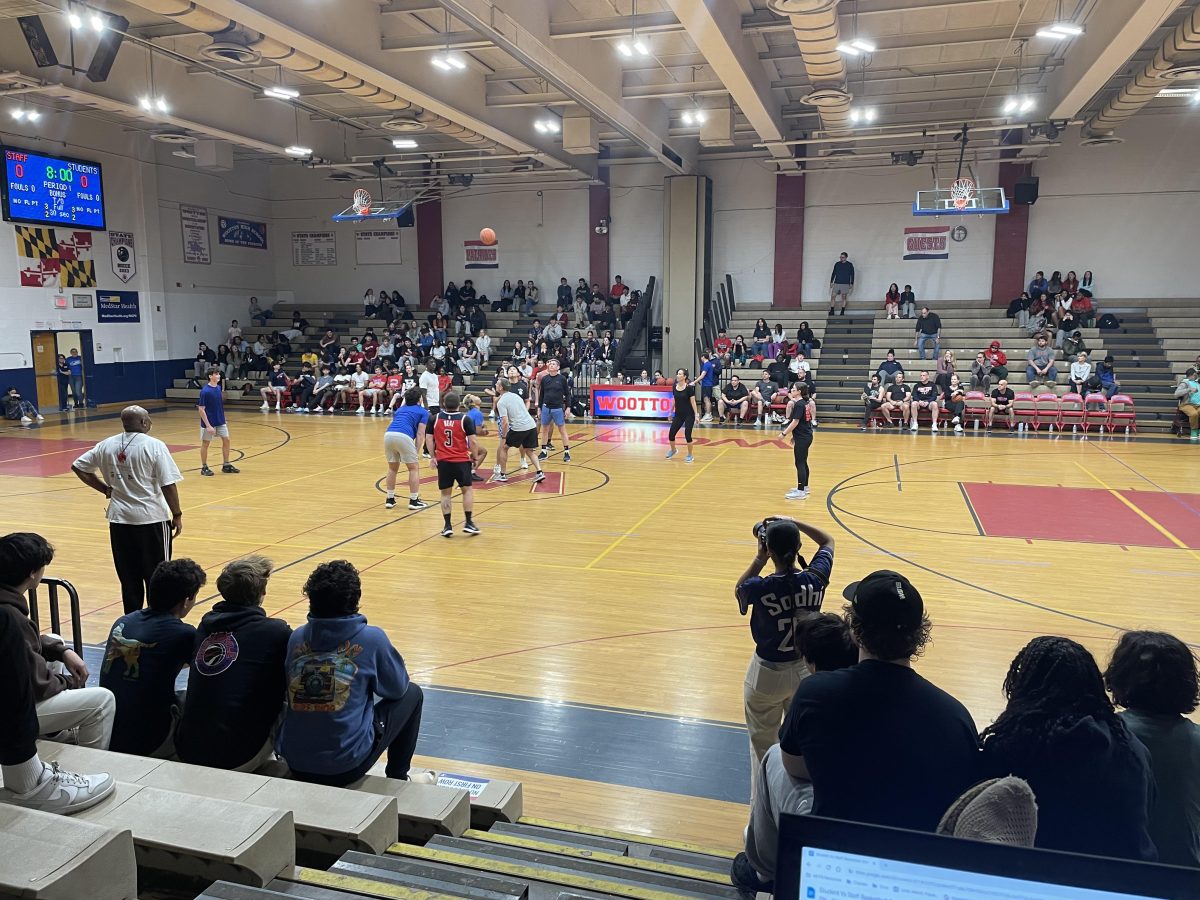Every student enters high school with a basic course plan laid out before them. Students in the state of Maryland are obligated to take 22 credits in order to graduate. Ultimately, who decides the graduation requirements for students in Maryland?
The governor of Maryland, with the approval of the Senate, selects 12 individuals from counties around the state to be members of the Maryland State Board of Education. This is not the case for all states. In D.C. and Michigan, for instance, members are elected rather than appointed.
Students in the state of Maryland are obligated to take 22 credits in order to graduate.
One facet of the board’s authority includes deciding which courses are essential for public school students. The only subjects that require four credits for graduation are English and math. There is an exception, however, for students who pass a calculus course. In the case of these students, the number of necessary math credits may be lowered from four. All students must complete algebra 1 and geometry.
“There are heads of science, a head of math, a head of English, etcetera, and they work with their counterparts in various counties to determine what they feel is needed. I’m sure that it’s also – since I’ve never worked on that level I can’t be completely sure – but I’m assuming [determining graduation requirements] has to do with national testing and national norms,” counselor Jennifer Taylor said.
The only subjects that require four credits for graduation are English and math.
College expectations for students are also believed to play a role in deciding which credits should be deemed necessary for receiving a high school diploma.
With a portion of a student’s schedules being filled with requisite courses, there is little room, especially as an underclassman, to take classes at one’s own discretion. There are a variety of opinions regarding the restrictive nature of schedules. “I do not believe students need to be enrolled in a math class all four years in high school. For those students who dislike math and/or want to major in something other than math or engineering in college, they should be able to pursue other interests in high school,” math teacher and director of the math department Keith Burnham said.
High school is where students gain a foundation in all different fields.
Conversely, some believe that constructing a schedule based on one’s interests in high school can be detrimental. College is perceived to be the place where individuals discover their calling, while high school is where students gain a foundation in all different fields as preparation for college. People fear that if there were more flexibility in schedules, students may feel inclined to replace core subjects with more passion-oriented ones. Universities could potentially look down upon on the lack of variety in the schedules of these students, making acceptance a more challenging feat. Also, if students realize that the courses they have focused on in high school are no longer fulfilling or interesting, gaining experience in other subjects in order to redirect one’s future may prove to be difficult.
Replacing core subjects with passion-oriented ones raises the question of what should be considered a “core class.” As society has grown to be more STEM-focused, there has been an increased emphasis on math and science. The widespread intention to pursue these fields, however, is not shared by everyone. For instance, classes like Foundations of art or Advanced photo would be considered “core” for aspiring artists.
Teachers and students alike understand the value in shaping students to be multi-faceted. Exposing students to all different subjects is seen as an effective way to elevating the skill-set and versatility of students. Being well-rounded is beneficial not only in a college setting but work environments too. “In college, there are standard requirements that [students] are going to have to take whether they like it or not,” senior Lauren Roling said.
Teachers and students alike understand the value in shaping students to be multi-faceted.
Students may also find they are passionate about fields they never realized when taking required classes.
While there is a set number of credits per subject each student must achieve prior to graduation, there are still options within these constraints. The math department, for example, offers SAMM and AP Statistics for students who desire a more humanities approach to their course load. As for art, the school certainly prides itself on the medley of selections for students to choose from such as fashion, painting, and photography.
Certain student-athletes take a different approach to the limited schedule flexibility. Some believe that students who are involved with team sports should be exempt from having to fulfill the school’s gym credit requirement. An overload of physical activity could lead to physical strain, which could hinder performance during team practice or competitions. “A lot of friends on my skating team go to Holton Arms, and they have to take 16 hours of physical activity a week so they’re all required to be on a sports team, but they skip school [for skating] and [the team] is not affiliated with the school, [so] they were able to say [that they] skate. I feel like maybe some kind of requirement like that would make it easier if athletes wanted to take something else,” senior Dina Sapiro said.
Students who are involved with team sports should be exempt from having to fulfill the school’s gym credit requirement.
Being on a school-sponsored sports team in lieu of taking P.E. courses would also help with the ongoing issue of lacking school spirit. With increased team engagement, more students would attend games and competitions, possibly enhancing the feeling of unity among students. “Though I do love my P.E. class, I do feel that being a part of a school team would help a lot with the participation in school events number one, but also would help with the academics too because it would allow for another whole credit to open up for a different class,” sophomore Itxaso Ezcurra said.
The change in P.E. credit requirements would also be beneficial for teams that have difficulty recruiting new members. “I know for co-ed volleyball, it’s very hard to find boys that want to play. Even if they don’t know the sport, they might still be accepted for other skills that they have. Having P.E. courses taken out of your schedule if you do a sport would actually help so much for I think the whole school,” Ezcurra added.
Another problem that people notice with a large number of graduation requirements is that it increases the likelihood for students to take certain classes as an “easy A” rather than taking them as a way to challenge themselves and explore their intellectual, artistic, or physical curiosities. Almost all students are familiar with the experience of being in that one class where nobody takes anything seriously, that one class that is filled with students who are there because “they have to be.” If graduation requirements were adjusted, then those classes would be filled with students who are passionate about the subject rather than students looking for a simple way to check off a credit.
It is imperative for students to be aware of the credits expected of them.
The need for structure is something that is shared among humans, and graduation requirements provide just that for students. With the abundance and complexity of personal circumstances, it is easier for the whole student body to adhere to one coherent set of conditions. “It’s one of those things that can be debated forever,” Sapiro said.
It is imperative for students to be aware of the credits expected of them by the schools they are interested in. For instance, colleges that are science-oriented may only be willing to accept students who go above and beyond the required science credit number. Georgia Tech is a perfect example of this because while it is mandatory for students in Maryland to take three science credits, Georgia teach requires four for undergraduate admissions.
The latest change to the school in terms of science is the removal of the class Matter and Energy in 2017. Despite the removal, students are still required to finish their three science credits. They must complete biology and a physical science such as chemistry or physics. While certain upperclassmen are thankful they never had to take physics or an AP science, this change has caused some resentment among upperclassmen, some of whom wish they could have been pushed to take physics instead of matter and energy. Students and teachers believe that taking physics in high school saves students from the stress of being exposed to the subject for the first time in college.
Matter and energy was perceived to be beneficial in preparing students for chemistry. The second semester instructed students on constructing and balancing equations as well as understanding the periodic table. Students now enter chemistry with no prior knowledge concerning chemical equations, making the course more difficult. Chemistry teachers also are affected by this change because there is now a surplus of students who need extra assistance with understanding the course material. This limits the amount of time the teachers have to themselves in the morning and during lunch.
The latest change in terms of science is the removal of the class Matter and Energy in 2017.
Overall, the school body seems to be in general agreement. “I think having students take a wide variety of courses and having kids have to have a P.E. course and an art course, things that they might not normally do, [is] a healthy thing. I think in your freshman and sophomore year you may not have the same understanding of what you want to do post-high school and into college and then obviously after college as you do in your junior and senior year, so it makes sense to have more openings in your schedule the last two years,” Taylor said.
While the state has implemented changes to the graduation course requirements in the past, there is no indication that more developments will occur any time soon.
















